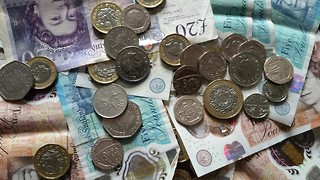The general election: place your bets
Why everyone should gamble on politics
I am consistently surprised by the number of Cambridge students who are completely unfamiliar with the excitements of gambling. Political betting, in particular, always struck me as a sideline that had the potential to appeal to the average Cambridge undergraduate; its practice has a long and interesting history, it provides a fascinating study for students from a wide range of academic persuasions, and it becomes increasingly lucrative as one harnesses a more finely tuned sense of emotional detachment.
Wagering on political outcomes has a long history across Europe and the United States, dating back to the election of Washington and existing in organised markets since the administration of Lincoln. By the 1930s, most of the (illegal) wagers in the United States were six-figure sums on political markets, and during election campaigns, political wagering would exceed trading on the New York stock market. In 1916 political wagering in the US more than doubled the total campaign costs of the Presidential candidates and, although the relative sums of money bet on election campaigns has since declined, the main political parties continue to use betting odds in order to gauge the public mood. When working for the Labour Party, I have been repeatedly advised to disregard reams of data from polls, market research firms and expert psephologists in favour of the latest odds from leading bookmakers: it is commonly held that they possess a predictive power unknown to any researcher, and often remarked that they are “never wrong”.
My experience of political betting stems back to the London Mayoral election of 2008. I had developed a complete fascination with the campaign, and found myself perusing the available odds online; this was the effect of curiosity-sprung-from-boredom, rather than any genuinely enterprising spirit. Given the poor showing of the Labour candidate, Ken Livingstone, in the published polls, I was seeking comfort and reassurance from another source – in much the same way that one frequently seeks out favourable predictions, disregarding those that displease. To my astonishment, however, I could find no encouragement from betfair.com or, indeed, any of its competitors: the odds on a Labour victory, if I remember correctly, were 7/2. My ideological bias kicked in, and I banked £300 on it.
So foolishly confident was I of my impending victory that I spent the next three weeks planning how exactly I would spend my winnings. So cheated did I feel when Ken Livingstone lost, in a landslide victory to his foppish Conservative rival, that I determined to recoup my loss by making more cynical political bets on clear favourites, and made a few small profits in by-elections. Small profits, however, are not terribly satisfying, and so I began exploring spreads and accumulators as ways of increasing my potential profit. As it happens, this was a stellar strategy, and I made a gargantuan profit on the US Presidential election (compiling a series of odds to predict the precise extent of Obama’s victory). I’ve been hooked ever since.
I believe that you, Cambridge, are missing out on one of life’s great pleasures. As a simple hobby, a gainful sideline, or otherwise, political betting lends itself to your particular talents: success in this field requires a willingness to invest in an intellectual game and a foolhardy belief in your own ability to bluff your way into and out of everything. No other qualities are necessary. “Try everything once”, Sir Thomas Beecham famously said, “except folk dancing and incest.” And now, I urge you to be tempted.
 News / Students form new left-wing society in criticism of CULC3 September 2025
News / Students form new left-wing society in criticism of CULC3 September 2025 News / Tompkins Table 2025: Trinity widens gap on Christ’s19 August 2025
News / Tompkins Table 2025: Trinity widens gap on Christ’s19 August 2025 News / Cambridge’s tallest building restored to former glory1 September 2025
News / Cambridge’s tallest building restored to former glory1 September 2025 News / Council rejects Wolfson’s planned expansion28 August 2025
News / Council rejects Wolfson’s planned expansion28 August 2025 Interviews / GK Barry’s journey from Revs to Reality TV31 August 2025
Interviews / GK Barry’s journey from Revs to Reality TV31 August 2025








